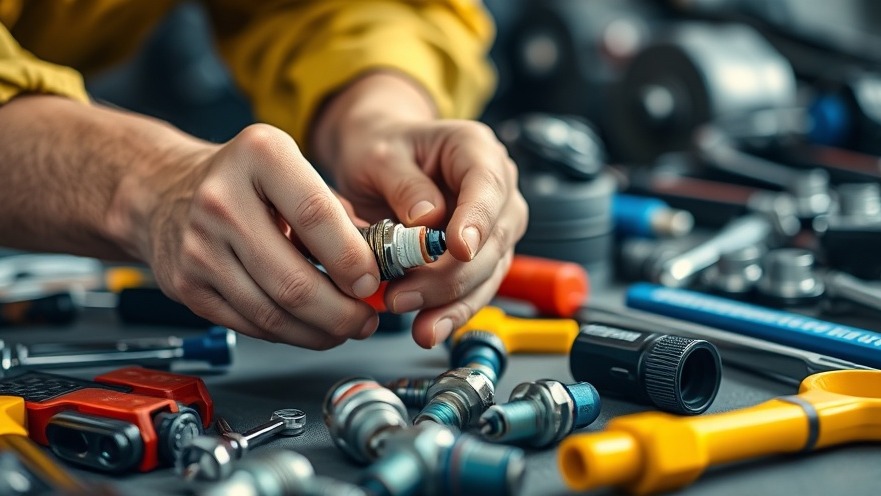
The Importance of Vehicle Maintenance at 100-120K Miles
If you own a vehicle that has reached the 100,000 to 120,000 mile mark, it's crucial to start thinking about its maintenance. Maintenance is not only about keeping your car running smoothly; it's about extending its life and ensuring safety on the road. Regular tune-ups and timely replacements of key parts can significantly impact your car's performance and reliability.
In the video '100-120K Miles on Your Car or Truck? Parts You Should Have Replaced Already, and What to Replace Now,' valuable insights are shared about vehicle maintenance, which prompts us to explore these tips further.
Essential Tune-Ups for Longevity
First and foremost, conducting a general tune-up is essential. Recommended components typically include spark plugs and various filters, which should be checked and replaced as per the manufacturer’s guidelines. These tiny components play a significant role in your vehicle’s health. For instance, a clean air intake filter helps your engine breathe more easily, leading to better efficiency.
You might also want to inspect your cabin air filter. Replacing this part can eliminate musty odors from your car’s interior, making your drives much more pleasant.
Stay Safe: Inspect Suspension and Brake Components
With high mileage vehicles, the importance of inspecting suspension and brake components cannot be overstated. Focus on checking control arms, bushings, shocks, struts, and brake fluid. Control arm bushings that are worn may lead to unsettling sounds when driving. If left unchecked, it can also cause problems with your car's alignment. Remember, a well-aligned vehicle ensures a smoother ride and less tire wear.
Additionally, keep an eye on your shocks and struts. They can affect tire wear and handling. Ensuring these parts are functioning correctly not only enhances driving comfort but can be pivotal for your safety.
Fluid Checks: The Lifeblood of Your Vehicle
Fluid checks should also be a key focus at this point in your vehicle's life. From the rear differential to oil pans, inspect for any signs of leaks. Any little dampness around seals can indicate issues that may worsen over time. Regular checks can prevent bigger problems down the road, potentially saving you from costly repairs.
Moreover, ensure that your brake fluid is replaced as necessary. Contaminated brake fluid can absorb moisture, leading to decreased braking efficiency.
Actionable Steps for Vehicle Owners
So, what should you do if your vehicle is in this mileage range? Start by checking your maintenance history, and consider scheduling a comprehensive inspection with a trusted mechanic. Look into replacing crucial components, and don't hesitate to consult your owner's manual for specific recommendations tailored to your car model.
Taking action sooner rather than later can lead to significant savings and a safer driving experience. Remember, a well-maintained vehicle is not just about performance; it’s about keeping you and your loved ones safe on the road!
In sum, maintaining a vehicle with 100-120K miles involves being proactive about tune-ups, inspections, and parts replacements. By keeping tabs on these necessary checks, you can enjoy a reliable car for many more miles ahead.
 Add Row
Add Row  Add
Add 




Write A Comment